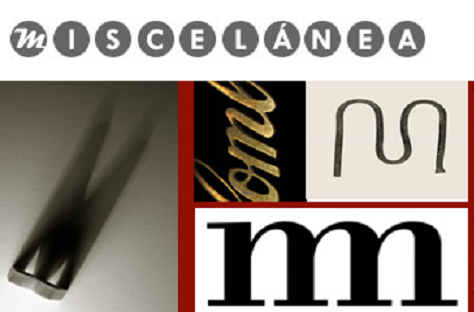"Vivieron felices para siempre": Los finales de la comedia romántica contemporánea
DOI:
https://doi.org/10.26754/ojs_misc/mj.199811012Resumen
La ideología de las comedias románticas se ha situado a menudo en su actitud ante el final feliz tradicional: un final feliz no problemático da lugar a una película que apoya los discursos dominantes; uno problemático sugiere intentos de transgredir las convenciones narrativas y culturales. En este ensayo, intento escapar de esta lógica binaria inflexible y proponer un análisis de los finales de la comedia romántica contemporánea que explore la incorporación por parte de los textos de las transformaciones culturales y, más concretamente, cómo las estrategias de contención y cierre negocian nuevas actitudes en el ámbito de las relaciones románticas y sexuales en la sociedad estadounidense contemporánea. Como parte de una investigación más amplia sobre la evolución contemporánea de la comedia romántica, esbozo aquí cinco aspectos de las relaciones románticas en los que los finales de ejemplos recientes del género muestran conciencia de la evolución social: la solitaria heroína romántica, la inquietud sobre la durabilidad de la pareja, la nostalgia de un pasado más inocente, el impacto de los cambiantes roles de género tanto social como sexualmente, y la visibilidad de las diferentes permutaciones de género en las relaciones íntimas.
Descargas
Citas
BABINGTON, Bruce, and Peter William EVANS. 1989. Affairs to Remember: The Hollywood Comedy of the Sexes. Manchester: Manchester UP.
BUTLER, Judith. 1990. Gender Trouble: Feminism and the Subversion of Identity. New York: Routledge.
FUCHS, Cynthia J. 1993. “The Buddy Politic.” In Screening the Male: Exploring Masculinities in Hollywood Cinema. Ed. Steven Cohan and Ina Rae Hark. New York: Routledge. 194-210.
GIDDENS, Anthony. 1992. The Transformation of Intimacy: Sexuality, Love and Eroticism in Modern Societies. Cambridge: Polity Press.
HUTCHEON, Linda. 1985. A Theory of Parody: The Teachings of Twentieth-Century Art Forms. London: Methuen.
KLINGER, Barbara. 1994. Melodrama and Meaning: History, Culture and the Films of Douglas Sirk. Bloomington: Indiana UP.
KRUTNIK, Frank. 1990. “The Faint Aroma of Performing Seals: The “Nervous” Romance and the Comedy of the Sexes.” The Velvet Light Trap 26 (Fall 1990): 57-72.
LASCH, Christopher. 1991. The Culture of Narcissism: American Life in An Age of Diminishing Expectations. 1979. New York: Norton.
LENT, Tina Olsin. 1995. “Romantic Love and Friendship: The Redefinition of Gender Relations in Screwball Comedy.” In Classical Hollywood Comedy. Ed. Kristine Brunovska Karnick and Henry Jenkins. New York: Routledge. 314-331.
NEALE, Steve. 1992. “The Big Romance or Something Wild?: Romantic Comedy Today.” Screen 33.3 (Autumn 1992): 284-299.
NEALE, Steve, and Frank KRUTNIK. 1990. Popular Film and Television Comedy. London: Routledge.
NEUPERT, Richard. 1995. The End: Narration and Closure in the Cinema. Detroit: Wayne State UP.
Rowe, Kathleen. 1995. The Unruly Woman: Gender and the Genres of Laughter. Austin: U of Texas P.
SEDGWICK, Eve Kosofsky. 1985. Between Men: English Literature and Male Homosocial Desire. New York: Columbia UP.
SEIDMAN, Steven. 1991. Romantic Longings: Love in America, 1830-1980. New York: Routledge.
TRAUB, Valerie. 1991. “Desire and the Differences it Makes.” In The Matter of Difference: Materialist Feminist Criticism of Shakespeare. Ed. Valerie Wayne. New York: Harvester Wheatsheaf. 81-114.
WEXMAN, Virginia Wright. 1993. Creating the Couple: Love, Marriage, and Hollywood Performance. Princeton: Princeton UP.
Descargas
Publicado
Cómo citar
Número
Sección
Licencia
Derechos de autor 1998 Celestino Deleyto Alcalá

Esta obra está bajo una licencia internacional Creative Commons Atribución-NoComercial 4.0.


